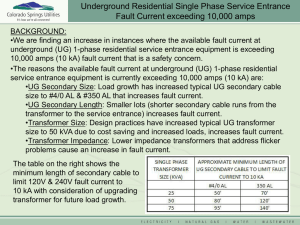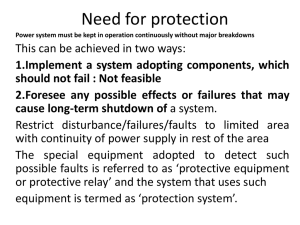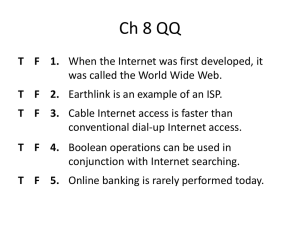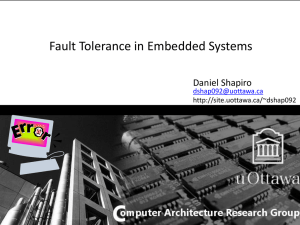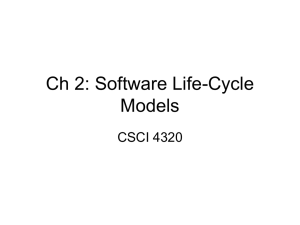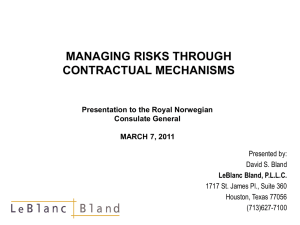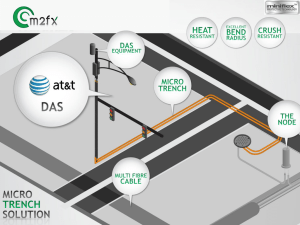CABLE FAULT ANALYSIS BY
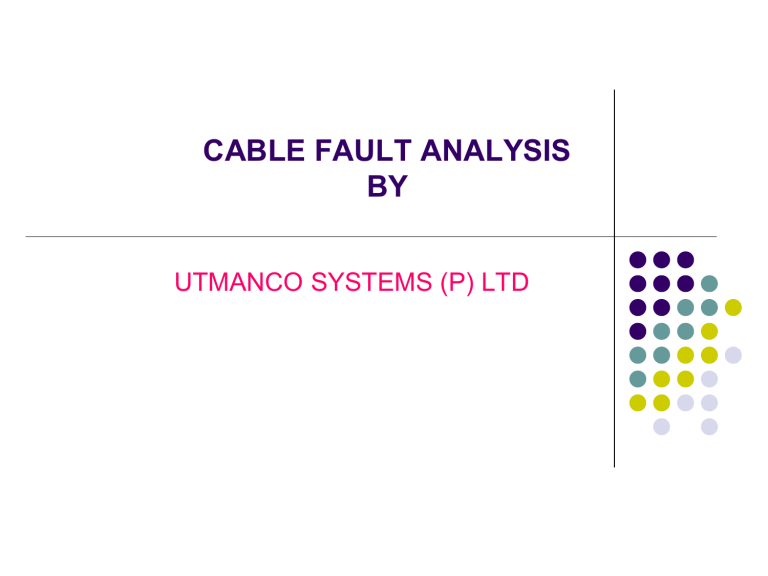
CABLE FAULT ANALYSIS
BY
UTMANCO SYSTEMS (P) LTD
What is a Fault ?
DEFECT
WEAKNESS
INCONSISTENCY
OR NON- HOMOGENEITY
THAT AFFECTS THE
PERFORMANCE OF THE CABLE
COMMON TYPES OF FAULT
CONTACT FAULTS (SHORT CIRCUIT FAULTS)
BREAKS (OPEN CIRCUIT FAULT)
CONTACT FAULT
A connection or part connection between one core
(conductor) and another or others or between core(s) and the metallic sheath.
Value of fault resistance varies between zero ohms and many megohms.
BREAK FAULT
(OPEN CIRCUIT OR SERIES FAULT)
1.
2.
3.
“CLEAN” BREAK IN CONDUCTOR
“DIRTY” BREAK
“ PARTIAL” BREAK
CORRECT APPROACH TO CABLE
FAULT LOCATION
3.
4.
1.
2.
DIAGNOSIS
PRE-CONDITIONING
PRE-LOCATION
PIN-POINTING
DIAGNOSIS
1.
4.
5.
2.
3.
Find out type of cable,length,time in service, how the fault occurred, protection operation etc.
Ensure both ends of the cable are disconnected
Test the insulation resistance between all conductors and sheath
Use an analog multimeter (avo) to measure the value of the fault resistance.
Check the continuity of all cores with the avo.
PRE-CONDITIONING
It may be necessary to alter the fault characteristics from a high resistance to low resistance or from an unstable flashing condition to a stable resistive fault
How?
1.
2.
Passing current through the fault to carbonise insulation (fault burner)
Re-energising cable
3.
Leaving the cable dead for sufficient time to allow moisture to penetrate.
PRE-LOCATION
To determine the distance to fault either as a percentage of cable length or directly in units of distance.
1.
2.
Utmanco offers two equipment for pre-location
Pulse echo tester
Digital cable fault locator.
PIN-POINTING
Positively confirms the exact position of fault
1.
Test cable from both ends with cable fault locator . if the two readings add up to give the total length of cable, then the location of fault is confirmed.
2.
Excavate cable at the distance obtained perhaps 3 metres on either side of fault position. Connect 230v phase to faulty core. Use utmanco non-contact voltage detector to detect voltage leakage point on the exposed cable to pin-point fault.

